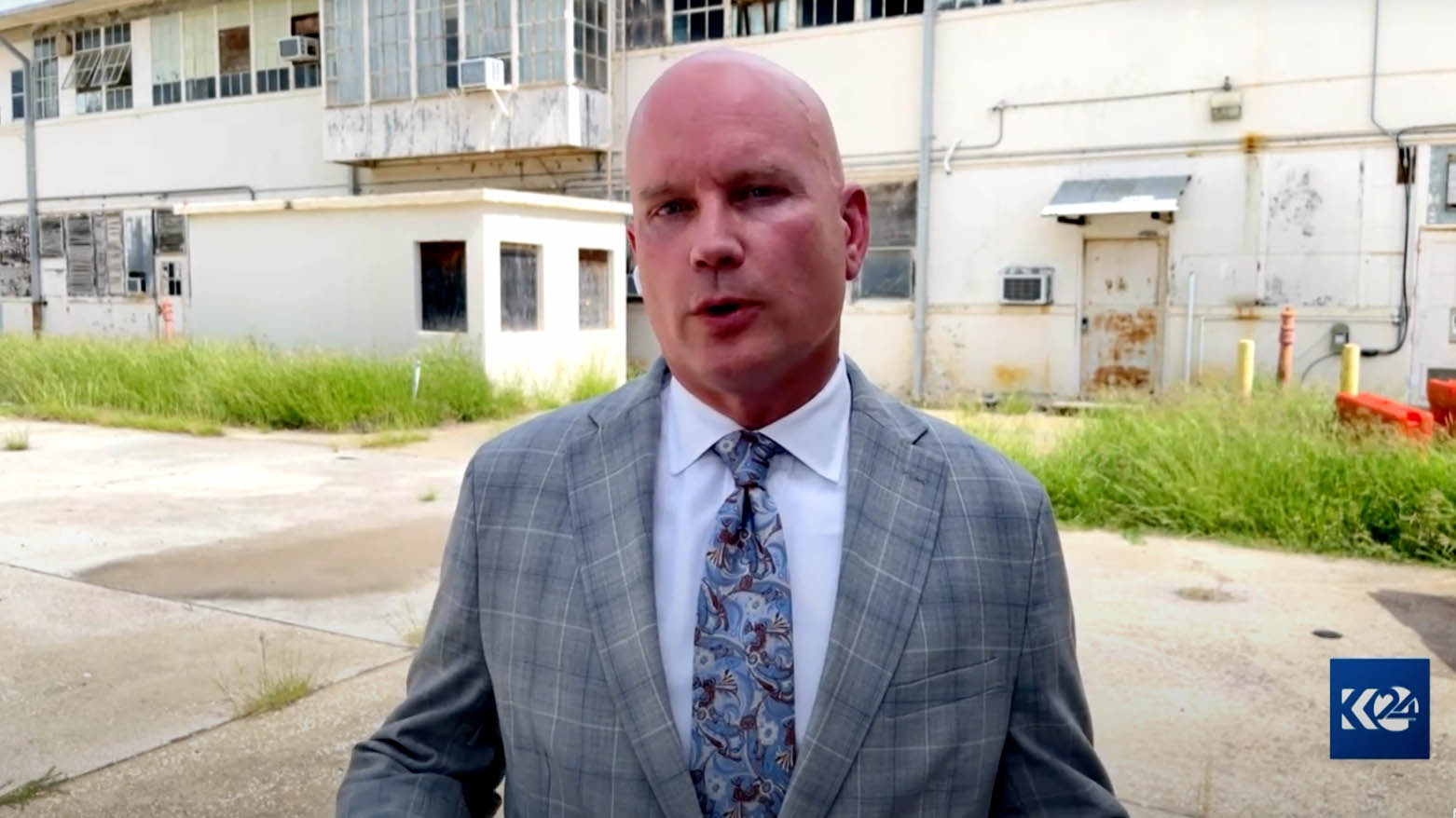At Gitmo hearings resume, lawyer for Ammar al-Baluchi charges proceedings tainted by torture

GUANTANAMO BAY, Cuba (Kurdistan 24) – Within months of the 9/11 attacks, the George W. Bush administration established new legal proceedings for criminal trials for some of the individuals involved in that attack, or believed to be, as well as for individuals suspected of involvement in subsequent terrorist attacks.
This new legal system applied to those captured abroad, but not to those arrested in the U.S., like Zacarias Moussaoui, who was detained in Minnesota and thought to have been an intended 20th hijacker.
The 9/11 attacks—which killed nearly 3,000 Americans in just ninety minutes—were unprecedented in their lethality, and so, also, was the response of the Bush administration.
The new procedure was oriented more toward ensuring U.S. national security—above all, preventing a second assault—than toward ensuring a fair trial for those who had participated in the 9/11 attacks or were believed to have done so.
Two unprecedented steps followed the unprecedented attack. Bush shifted responsibility for the prosecution of terrorists from the Justice Department, where knowledge of national security issues can be quite limited, to the Defense Department, which is focused on such matters.
In addition, the criminal proceedings were to be conducted in territory controlled by the U.S., but under the sovereignty of a foreign country: the U.S. Naval Base at Guantanamo Bay in southeastern Cuba, over which the U.S. gained control over a century ago, during the Spanish-American war.
Moreover, terrorist suspects captured abroad were subject to torture in CIA “black sites” in foreign countries. That has created a major issue for the judicial proceedings now underway.
Those proceedings have moved at a snail’s pace. Indeed, it has been over 20 years since the 9/11 attacks and nearly as long since the detainees were captured. They have been imprisoned ever since.
Because of their unprecedented nature, the proceedings at Guantanamo have faced one legal challenge after another. In addition, the COVID epidemic contributed to further delay.
However, the proceedings did resume earlier this fall, and Kurdistan 24 is at the U.S. Naval Base, informally known as Gitmo, to cover the second set of such hearings, which relate to the prosecution of Khalid Sheikh Mohammed. He is the mastermind of the 9/11 attacks.
These proceedings include three of Mohammed’s key associates. The hearings were supposed to begin on Monday, but one of the lawyers contracted COVID, delaying the proceedings for two days.
The prosecution does not really speak with the media. So Kurdistan 24 spoke with the defense teams, starting with James Connell, the lead lawyer for Ammar al-Baluchi.
Ammar al-Baluchi
According to the U.S. charges, Ammar al-Baluchi was based in Dubai, where he coached the 9/11 hijackers on how to behave in the U.S. and wired them funds, once they arrived there.
Baluchi was captured in Karachi, Pakistan in April 2003. He is the second youngest of the Gitmo detainees accused of direct involvement in 9/11. He was just 25 years old at the time.
Baluchi is ethnically Baluch, as his nom de guerre suggests. Connell told Kurdistan 24 that his family was from Iran, although he was born in Kuwait and lived there until he was 13. In 1989, as Connell said, he returned with his family to Iran.
The Baluch live on both sides of the border between Iran and Pakistan. Previously, major U.S. media, like The New York Times, had reported that while Ammar al-Baluchi was ethnically Baluch, he was from Pakistan.
Effect of CIA torture
Baluchi was among those subject to torture by the CIA. A central issue in this set of hearings is whether the CIA interrogations have tainted the legal proceedings.
That is a question for the judge to decide. And if he decides they did, it will also be for him to decide how to deal with that situation.
As Connell told Kurdistan 24, “My client is one of the men who was placed in the CIA torture program for three years between 2003 and 2006.”
Connell has explained to broader groups of reporters that while Baluchi is considered a “model prisoner,” he has been broken by the CIA interrogations. Repeatedly having his head slammed against a wall has left him with traumatic brain injury, Connell said, citing one example.
“Almost none of the men who were placed in that torture program have ever been released,” Connell told Kurdistan 24. “Only one has been released.”
“All the others are still here,” he continued, charging it was “part of the effort to cover up the United States decision to use torture as an instrument of state policy.”
Some 30 men remain at Gitmo. “About two thirds,” Connell said, “have not been accused of anything, and they have been cleared for release,” which means “it was determined” they were not “a danger or a problem by all US agencies put together.” The problem is with their home countries, which do not want them back.
So that would mean that there are about ten men still detained at Guantanamo who are charged with a crime and are to be tried by a military commission.
But as Connell stated, reflecting a widely shared view among the defense teams, “It's very difficult to tell,” whether they really committed any major crime, “because so much of the evidence in the case has been tainted by torture.”
“This is not a question like an ordinary crime, where the police go out and investigate and establish proof of guilt or innocence,” he continued. Instead, the U.S. government “decided not to place these men under ordinary law enforcement and judicial processes and instead secreted them in secret prisons for three years, where it is impossible to know whether what they said” under such conditions “was the result of torture.”
